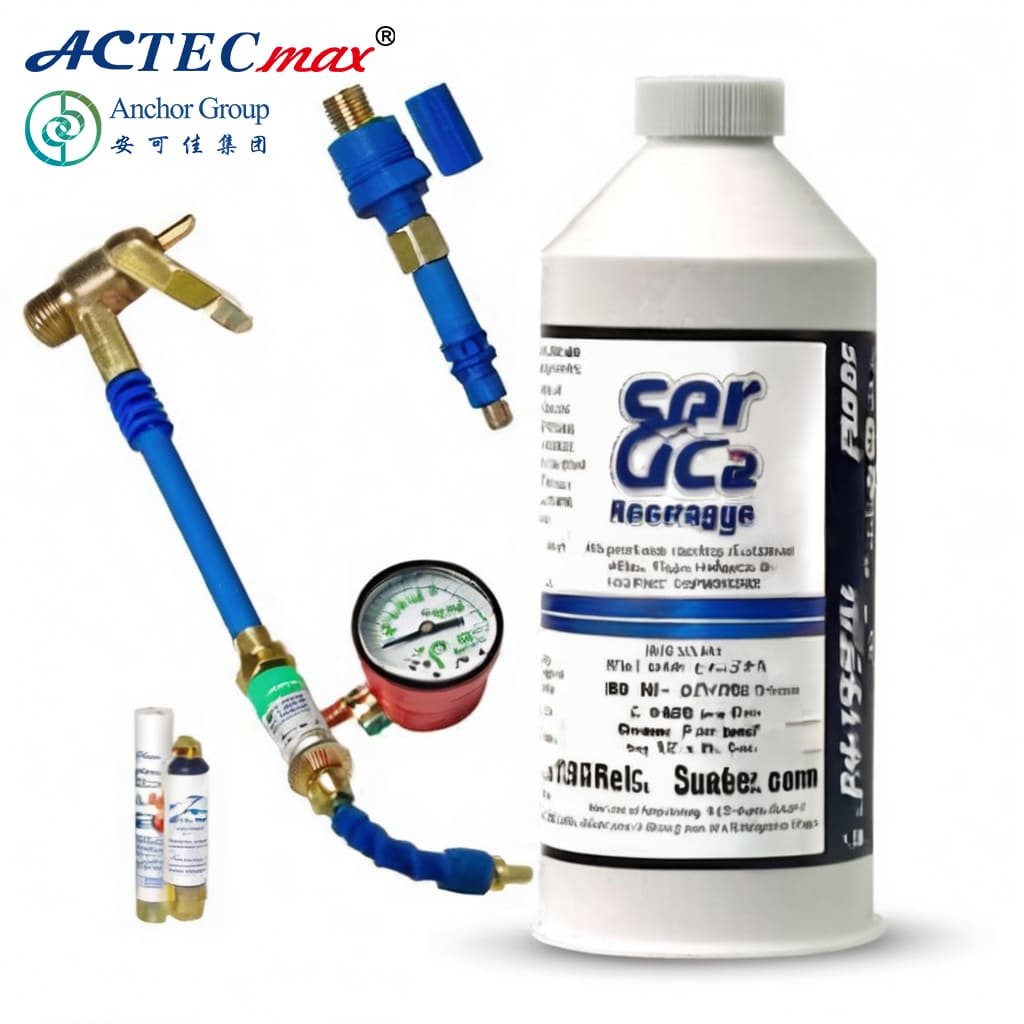
Auto Refrigerants: Does Van AC Has Freon?
When it comes to understanding the type of refrigerant used in your vehicle’s air conditioning system, many people still associate the term “Freon” with all automotive A/C systems. However, if you’ve been wondering, does van AC has Freon? and what are auto refrigerants, you’ve come to the right place. In this blog post, we’ll clarify these questions and explore the evolution of refrigerants used in modern vehicle air conditioners.
Freon is a trade name for a group of refrigerants that were commonly used in air conditioning systems for many years. Freon originally referred to CFC-12 (chlorofluorocarbon), a refrigerant known for its efficiency but also for its harmful effects on the ozone layer. Due to the environmental risks, the use of CFC-12 was phased out globally under the Montreal Protocol, which led to the development of alternative refrigerants.
Today, Freon is often used as a generic term for refrigerants in popular culture, but the reality is that modern air conditioning systems, including those in vans, use different types of refrigerants that are much more eco-friendly than the Freon of the past.
The short answer is no, most modern van A/C systems do not use Freon anymore. While Freon (CFC-12) was the standard refrigerant for car and van air conditioners in the past, it was phased out by the 1990s due to its harmful effects on the ozone layer.
In place of Freon, newer vehicles, including vans, use refrigerants like R134a and R1234yf. R134a became the industry standard after CFC-12 was banned, and R1234yf is now being adopted in newer vehicles for its much lower global warming potential (GWP).
Thus, van A/C systems no longer contain Freon. Instead, they use refrigerants like R134a or the more modern R1234yf, both of which are significantly more environmentally friendly than the Freon used in the past.
Here’s a quick breakdown of how auto refrigerants have evolved:
The primary reason Freon (CFC-12) is no longer used in van A/C systems is its devastating impact on the ozone layer. The ozone layer protects the Earth from harmful UV radiation, and CFCs like Freon were shown to deplete this layer.
In response to growing environmental concerns, global agreements like the Montreal Protocol mandated the phasing out of CFCs. As a result, R134a was introduced as a more environmentally friendly alternative. However, as concerns about global warming grew, R1234yf, a refrigerant with even lower global warming potential, started to replace R134a in the latest vehicle models.
To determine whether your van’s air conditioning system uses Freon, R134a, or R1234yf, you can check a few different sources:
If your van was manufactured before the mid-1990s, it might still use Freon (CFC-12), but this is highly unlikely in modern vehicles. If your van uses R134a or R1234yf, rest assured that these are much more environmentally friendly options.
Using the correct auto refrigerant is crucial to ensure that your van A/C system works effectively and efficiently. Using the wrong refrigerant can damage the A/C system, leading to poor cooling performance, higher repair costs, and potential environmental harm.
To keep your van A/C running smoothly, it’s essential to maintain the system regularly. Here are a few tips:
In conclusion, van A/C systems no longer use Freon. The shift away from Freon to more environmentally friendly refrigerants like R134a and R1234yf reflects the ongoing efforts to reduce the environmental impact of vehicle air conditioning systems. Understanding the evolution of auto refrigerants and the changes in regulations over time will help you stay informed about your vehicle’s A/C system and its maintenance.
If you’re still asking, does van AC has Freon, the answer is no — and with the newer, eco-friendly refrigerants in use today, that’s good news for the environment.
Make sure to check your vehicle’s A/C system for the correct refrigerant, maintain it properly, and keep cool during the hot months without compromising the planet’s future.